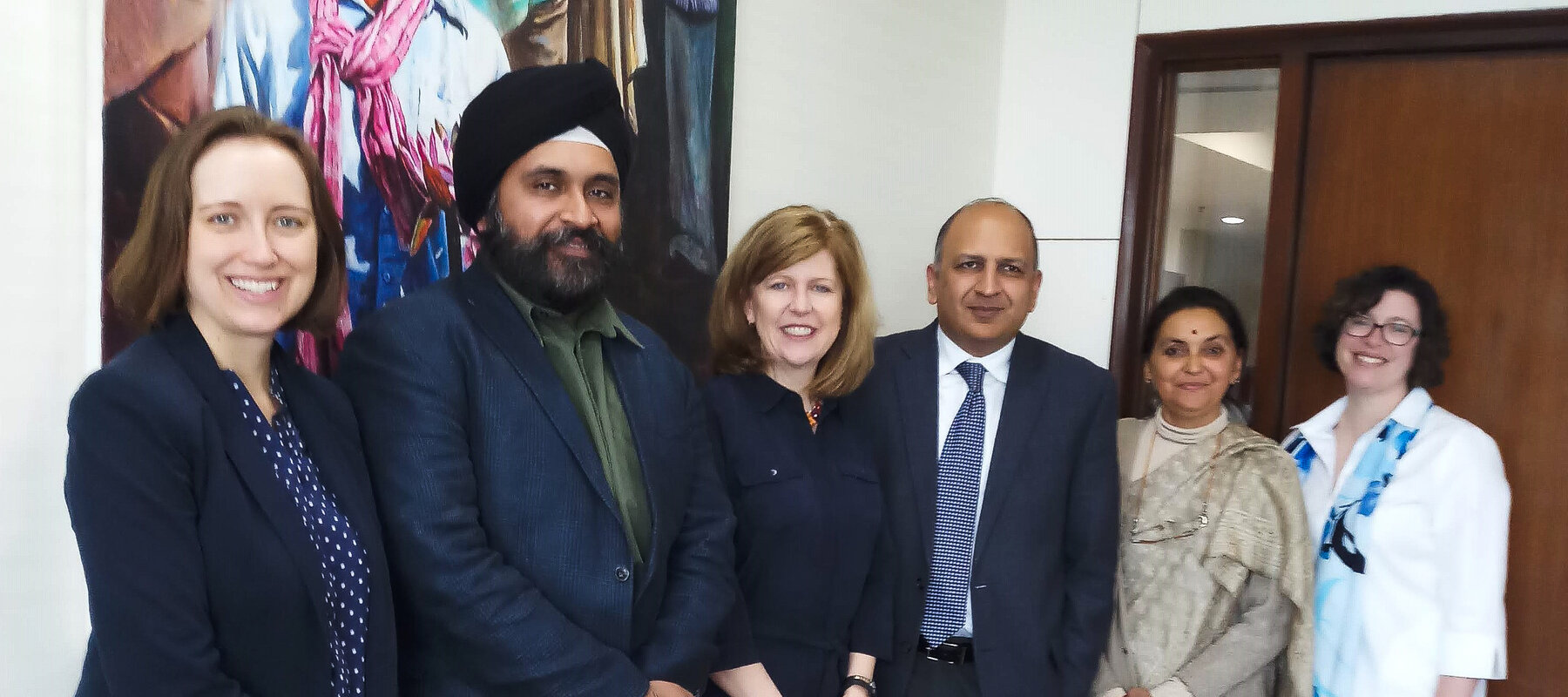In February 2019, three faculty members from Lehigh’s English Department traveled to Ashoka University in Haryana, India, to explore opportunities for collaboration between the two institutions.
Lehigh established a partnership with Ashoka University in 2017, laying the groundwork to establish new student exchange programs, create cross-institutional research opportunities, expand entrepreneurial opportunities and more. This visit by Amardeep Singh, professor, and associate professors Suzanne Edwards and Jenna Lay is part of an effort to connect faculty at both institutions around mutual areas of strength.
Partnerships like this one can expand the intellectual horizons of faculty members in our department, improve our international visibility and be a potential opportunity for various forms of student exchange.
Founded in 2011 by a group of leading Indian business leaders, Ashoka offers an innovative curriculum focused on foundational knowledge, research and hands-on learning opportunities. In a country where higher education institutions tend to emphasize science and technology, it stands out for its emphasis on the liberal arts and interdisciplinary education.
“Ashoka University is a unique experiment in higher education,” says Singh. “They've essentially created a new research university from scratch in just five years – including building an entire campus! This has given them the opportunity to design liberal arts education that makes sense for the 21st century in a way that many of us at established institutions might envy. Partnerships like this one can expand the intellectual horizons of faculty members in our department, improve our international visibility and be a potential opportunity for various forms of student exchange.”
So far, much Lehigh’s collaboration with Ashoka has focused on creative inquiry and entrepreneurship. Several Ashoka students have participated in the Baker Institute for Entrepreneurship, Creativity and Innovation’s summer Hatchery accelerator and the Mountaintop Summer Experience, and Lehigh students have visited Ashoka as part of the Global Entrepreneurship Internship. The university also has particular strengths in English and women’s and gender studies – its Centre for Studies in Gender and Sexuality is the first center in India to study issues concerning both gender and sexuality.
“At Ashoka, English was one of their first departments and their first big graduate program,” says Lay. “They are also strong in women’s studies so there are several opportunities to extend an already exciting partnership. I’m most excited about the potential for graduate student exchange, which would be a new area for us. For English students at Lehigh, having the opportunity to go to Ashoka for a semester or year would help them learn how to teach in an international environment.”
During the visit, Edwards, Lay and Singh met with faculty colleagues and administrators to discuss shared areas of research and explore the potential for student or faculty exchanges. They also spoke with students in the new English Ph.D. program, presented their current work with Ashoka colleagues, and led a workshop for undergraduates about how to apply to graduate school in the humanities – several Ashoka students applied to Lehigh and one Ashoka graduate, Alishya Almeida, joined the English master’s degree program this fall.
Edwards also met with the staff of the Ashoka Archives of Contemporary India to talk about her work digitizing the archives of Gloria Naylor, an American novelist who won the National Book Award for The Women of Brewster Place, and maintaining participatory archives that are easy for scholars to access. Naylor visited India, and Edwards now wants to find Indian documents about that trip, like local news articles about readings. It’s an example of the potential of the partnership between the two universities.
“We have Naylor’s materials, but these Indian materials would add another dimension to the history and how we approach it,” Edwards says. “Collaborating with the Ashoka Archives has the potential to open up the transnational contexts for Naylor's writing and politics. More broadly, students, faculty and archivists at Ashoka who are researching Dalit literature, literature in the context of 20th-century Indian politics, religious women in medieval India. Here at Lehigh, we have a lot to learn from their work, which challenges archives and literary histories focused on Europe and the U.S."
